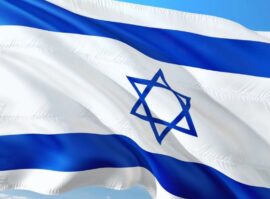 There was little visible progress on human rights during 201y. Authorities failed yet again to end structural and political discrimination against Jews, Roma, and other minorities. There was limited progress towards accountability for war crimes in domestic courts. Journalists remain vulnerable to intimidation and threats. Lesbian, gay, bisexual, and transgender (LGBT) people face hate speech and threats. More than 98,000 people remain displaced from their original homes, despite the fact that conflict ended more than 20 years ago, Human Rights Watch reports.Ethnic and Religious Discrimination
There was little visible progress on human rights during 201y. Authorities failed yet again to end structural and political discrimination against Jews, Roma, and other minorities. There was limited progress towards accountability for war crimes in domestic courts. Journalists remain vulnerable to intimidation and threats. Lesbian, gay, bisexual, and transgender (LGBT) people face hate speech and threats. More than 98,000 people remain displaced from their original homes, despite the fact that conflict ended more than 20 years ago, Human Rights Watch reports.Ethnic and Religious Discrimination
2017 marked another year in which the government and assembly failed to make progress amending the constitution to eliminate ethnic and religious discrimination in candidacy for the national tripartite presidency and the House of Peoples, despite a further pledge to do so by January 2017.
Currently, the constitution permits candidates for these institutions only from one of the three main ethnic groups—Bosniaks, Serbs, and Croats, thereby excluding Jews, Roma, and other minorities from political office. The European Court of Human Rights (ECtHR) ruled in 2009 and 2016 that the arrangements violate the European Convention on Human Rights.
Asylum Seekers and Internally Displaced Persons
According to the Ministry for Human Rights and Refugees, the official number of internally displaced persons (IDPs) at the end of October was 98,574. By mid-November, 39 internally displaced families (107 individuals) and 16 refugee families (56 individuals) had returned to their pre-war homes since January, according to the United Nations High Commissioner for Refugees (UNHCR).
By mid-November, Bosnia and Herzegovina had registered 211 asylum applications and granted four people subsidiary protection. No one had been granted refugee status at time of writing. Most asylum seekers came from Syria, Pakistan, and Afghanistan.
Between January and September 2017, Civil Rights Defenders, an international nongovernmental organization (NGO), documented an increased amount of freedom of assembly violations in Bosnia and Herzegovina. The most serious breach was the violent dispersal of a demonstration in Kruscica, where locals were protesting the building of a river dam.















